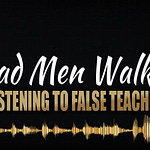Listen to the podcast version: Brought to you by Kathy Hill.
SUFFOCATION OF LONELINESS
The issue of child and adult loneliness has reached epidemic proportions in our modern society. With the rise of digital communication, social isolation has become more prevalent, leading to emotional, mental, and spiritual health challenges for individuals of all ages.
Children, often deprived of meaningful face-to-face interactions, struggle to form genuine connections and develop social skills. Adults, too, find themselves grappling with feelings of loneliness despite the illusion of being constantly connected online. This widespread isolation calls for urgent attention and action to foster real human connections, create supportive communities, and promote mental well-being. By addressing this epidemic, we can work towards a more compassionate and connected world.
MY STORY OF LONELINESS
Throughout my childhood, I suffered from two fears: loneliness and suffocation. Both fears ruled my life and overshadowed many of my experiences. The feeling of being alone and isolated from others and the overwhelming dread of not being able to breathe freely created a constant state of anxiety and unrest. These fears influenced my interactions, shaped my thoughts, and affected my emotional well-being. It was a challenging period, but it also became a part of my journey toward understanding and overcoming my inner struggles.
Throughout my childhood, I suffered from severe asthma, experiencing moments so intense that I edged on death due to suffocation from the inside out. Each breath was a struggle, and the fear of being unable to draw the next one was a constant companion. These episodes of breathlessness were not just physical battles but emotional ones as well, leaving me feeling vulnerable and afraid. This experience profoundly shaped my early years, instilling in me a deep sense of fragility and awareness of the preciousness of every single breath.
During my struggle with asthma, an overpowering fear of being alone would often wash over me. Each asthma attack felt like a solitary battle, where the weight of survival rested solely on my shoulders. Fully knowing that I was the only one who could fight to stay alive intensified the sense of isolation. The combination of physical suffocation and emotional solitude created a profound sense of vulnerability, shaping my childhood in ways that I still carry with me today.
Due to my constant battles with bordering on suffocation, I developed a habitual pattern of bouts with isolated loneliness. The struggle to breathe created an ever-present fear, leaving me feeling isolated in my fight for survival. This isolation became a recurring theme, as a deep sense of loneliness accompanied the fear of suffocation. It was as though each episode reinforced the feeling of being alone in my battle, shaping my experience and leaving a lasting impact on my emotional well-being.
CULTURAL LONELINESS
Loneliness is a pervasive issue that surmounts age, ethnicity, and geography. In contemporary society, cultural loneliness has become increasingly prominent due to various factors such as globalization, technological advancements, and the erosion of traditional church community structures. This essay explores cultural loneliness through the lens of Biblical teachings, offering insights and, hopefully, solutions grounded in scripture.
1. The Nature of Loneliness in Scripture
The Bible acknowledges the reality of loneliness and its impact on the human mind. In the beginning, God recognized Adam's solitude in the Garden of Eden and declared, "It is not good that the man should be alone; I will make him a helper fit for him" (Genesis 2:18, ESV). This foundational verse highlights the intrinsic need for human connection and companionship.
Throughout the Bible, we see examples of individuals who experienced loneliness. David, in his psalms, often cried out to God during moments of deep isolation and despair (Psalm 25:16, 38:9-11). Elijah, after his victory over the prophets of Baal, fled into the wilderness feeling utterly alone and despondent (1 Kings 19:4). These accounts remind us that loneliness is a common human experience, and even the faithful are not immune to it.
2. Cultural Shifts and Loneliness
Modern cultural shifts have exacerbated feelings of loneliness. The rise of individualism and the decline of communal living have left many people feeling isolated. Social media, while connecting us in unprecedented ways, often creates a façade of interaction, leaving individuals yearning for genuine, face-to-face relationships.
Ecclesiastes 4:9-10 underscores the importance of companionship: "Two are better than one, because they have a good reward for their toil. For if they fall, one will lift up his fellow." This wisdom speaks to the need for supportive, nurturing relationships that can counteract the isolation brought on by familiar and contemporary cultural changes.
3. The Role of the Church
The Church, as the body of Christ, has a unique role in addressing cultural loneliness. Acts 2:42-47 describes the early Christian community's devotion to fellowship, breaking of bread, and prayer. This model of communal living offers a blueprint for modern believers to advance a sense of belonging and support within the Body of Christ globally.
Hebrews 10:24-25 encourages believers to "consider how to stir up one another to love and good works, not neglecting to meet together, as is the habit of some, but encouraging one another." The Church is called to be a resource of hope and a place of refuge for those struggling with loneliness, providing opportunities for meaningful connections and mutual edification.
The church in modern culture is neglecting to fulfill the needs of its people, which has led to the emergence of a church culture of loneliness. This lack of genuine connection and support within the community has left many individuals feeling isolated and disconnected. It is imperative for the church to reassess its approach and prioritize fostering meaningful relationships and spiritual nourishment to address this growing concern.
4. The Comfort of God's Presence
Ultimately, the Bible assures us of God's constant presence and His ability to alleviate our loneliness. Psalm 23:4 declares, "Even though I walk through the valley of the shadow of death, I will fear no evil, for you are with me." The assurance of God's companionship offers solace to those feeling alone.
Yeshua, in His final words to His disciples, promised, "And behold, I am with you always, to the end of the age" (Matthew 28:20). This promise extends to all indwelt believers, reminding us that we are never truly alone. The Holy Spirit, described as the Comforter in John 14:16, is always with us, providing guidance, comfort, and companionship.
5. Practical Steps to Combat Cultural Loneliness
Believers are called to be proactive in addressing cultural loneliness. Here are a few practical steps:
Engage in Community: Actively participate in church activities, small groups, house gatherings, and community service to build meaningful relationships.
Practice Hospitality: Open your home to others, demonstrating a welcoming and inclusive environment.
Reach Out: Be intentional about connecting with those who may be isolated, offering support, discipleship, and companionship.
Pray: Seek God's guidance and comfort in times of loneliness, trusting in His presence and provision. Make a list of lonely people - pray for them.
Cultural loneliness is a significant challenge in our modern world, but the Bible provides timeless wisdom and practical solutions. By embracing the principles of fellowship, discipleship, community, and God's unwavering presence, believers can find solace and support amidst the pervasive feelings of isolation. As loyalists of Christ, let us be intentional in advancing genuine connections and extending God's love to those in need.
While loneliness continues to knock at my door, freedom usually prevails.
Being set free from the overwhelming fears of suffocation and loneliness in and through Yeshua has been a transformative journey. Through the darkest moments of my struggles, I found hope and strength in Yeshua's presence within me. His love and guidance became a constant source of comfort, alleviating the suffocating anxiety that once gripped my heart. As I embraced the reality that Yeshua lives within me, I experienced a profound sense of peace and assurance that I am never alone. This Holy connection has empowered me to face my fears with courage and trust in His unwavering support.
Knowing that Yeshua resides in my heart has brought a new depth of understanding and purpose to my life. It is through this intimate relationship that I have been able to overcome the isolation and loneliness that once defined my existence. Yeshua's presence fills the void, bringing joy, love, and companionship that surpasses any earthly connection. With Him by my side, I am free to live boldly, embracing the fullness of life He offers. This freedom has allowed me to step into a new chapter, one defined by faith, hope, and the boundless love of Yeshua.












Share this post